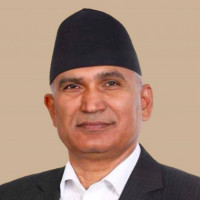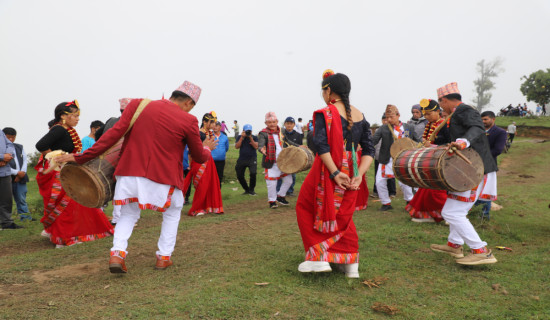- Sunday, 1 June 2025
KOICA’s $4.7 million project concludes
By A Staff Reporter,Kathmandu, Apr. 25: The Korea International Cooperation Agency (KOICA), together with implementing partner, Korea Development Strategy Institute (KDS) Consortium, have successfully concluded the five-year project titled "Empowering Rural Communities in Nepal through an Integrated Approach to Health and Income Growth".
Partnering with Dhulikhel Hospital with a total budget of USD 4.7 million, the project aimed to improve the quality of life in rural areas through enhanced healthcare access and sustainable income generation.
The closing ceremony was held in Kathmandu on Thursday.
Approximately 150 stakeholders attended the event, including officials from Nepal’s Ministry of Agriculture and Livestock Development, federal and local governments, the Embassy of the Republic of Korea in Nepal, KOICA Nepal Office, Dhulikhel Hospital, and civil society partners, according to a press statement issued by KOICA.
Implemented in four Dhulikhel Hospital Outreach centres across three districts (Tanahun, Sindhupalchowk, and Kavrepalanchowk), the project supported agricultural infrastructure—including collection centers, vehicles, and demo farms—and provided training to strengthen farmer organisations.
It also offered entrepreneurship and vocational programmes for non-farming residents.
In the health sector, two outreach centres under Dhulikhel Hospital were newly constructed and equipped, while training was provided to local health workers and students.
By mobilising community-led committees, the project fostered not only improved income and health outcomes but also a stronger sense of ownership and social cohesion.
In the event Kong Mooheon, Country Director of KOICA Nepal Office highlighted the strength of linking agriculture and health to enhance community resilience
Dr. Biraj Man Karmacharya from Dhulikhel Hospital thanked the team for the efforts on implementing the project.
He shared that the successful result is clearly visible on the sites with the demand on its continuation and expansion.
Despite the challenges posed by COVID-19, the project achieved successful and positive outcomes through the dedicated efforts of the project staff, the strong support of local governments and ward leaders, and the sincere participation of communities and farmers, said Dr. Yoon Haejin, Project Leader from KDS.
















